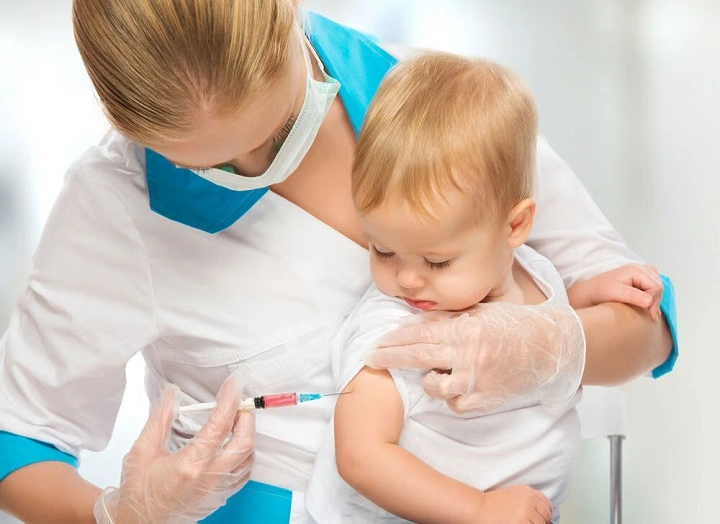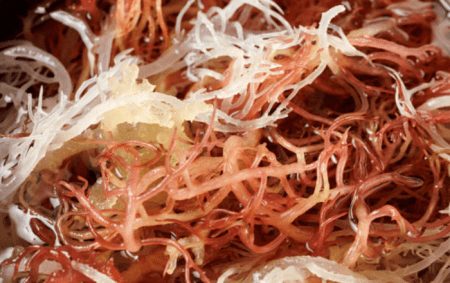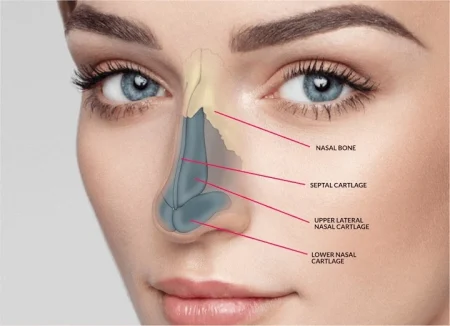The minute a baby is born, the first and most vital part of his or her medical care is the process of vaccination. These tiny shots protect newborns from life-threatening diseases that infect them. A parent is never sure when and with what shots the baby is given. One of such common questions asked by all parents is: “Do babies get shots at 9 months?”
The fact is, most countries don’t administer new vaccines to babies at exactly 9 months unless the babies qualify under the routine immunization schedule. Some children, however, would have to take catch-up vaccines or booster vaccines at 9 months of age, depending on your location, as per your doctor’s recommendation.
Understanding the Baby Vaccine Schedule
There is also the vaccine schedule in all nations where the vaccine is administered to the children at an appropriate time. WHO provides the standard guideline, yet the times to be selected are left to the national governments by their discretion according to the national health priorities.
American babies get immunizations at birth. 2 months, 4 months, 6 months, 12 months, and then additional ones. Other babies around the globe get one big dose at 9 months. That would probably be measles shot or MR shot.
So the answer to if your baby receives shots at 9 months is yes or no depending on where you live. It also depends on what your physician recommends.
Vaccines Most Likely Administered At 9 Months
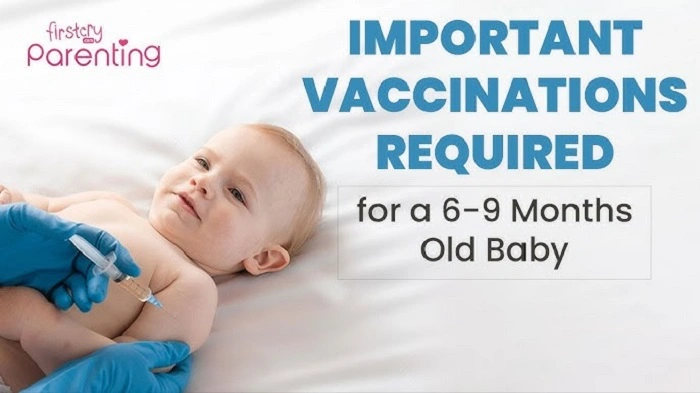
Measles Vaccine (or MR/MMR):
This vaccine is administered for the first time at nine months of age in most of the world. It protects against measles. Which is extremely contagious and sometimes fatal.
It can be administered as MR (measles + rubella) or MMR (measles, mumps, rubella).
Catch-Up Vaccines:
If the child was behind on previous doses (polio, DTP, or hepatitis B), he or she can catch up at 9 months.
Seasonal or Other Vaccines:
There are some physicians that administer flu vaccines or other extra shots depending on epidemics or other illnesses in the population.
Why Is the 9-Month Shot Necessary?
If it is administered in your country, the most probable 9-month vaccine is the measles vaccine. Measles is highly contagious and causes severe illness like pneumonia, encephalitis, and death. Infants are highly susceptible once they have outgrown the mother’s antibody protection acquired during fetal life, at 6–9 months.
By vaccinating at 9 months, doctors protect babies at the time they are most susceptible.
Preparations for the 9-Month Visit
Even though your infant receives no new vaccinations at 9 months, parents do take the baby in for a well-baby visit. The visit is necessary to:
- Measure growth (height, weight, head circumference)
- Check development (sitting, crawling, response to sound)
- Ask feeding, sleeping, and safety questions with your physician
- Determine if delayed vaccines need to be administered
If the infant will receive an injection during this visit:
- Bring the vaccine card.
- Take along any comfort item such as a toy or blanket.
- Rock the baby in advance to soothe the baby.
- Feed or breast feed a little later to soothe the baby.
Side Effects Common After Shots
Some babies may have mild side effects of the vaccine. These are harmless and would vanish immediately:
- Mild fever
- Redness and tenderness at the injection site
- Irritability and crankiness
- Drowsiness
To help:
- Offer additional cuddling and comfort.
- Offer additional fluids or breast feeding.
- Discuss with your doctor if a mild painkiller is necessary.
Call the doctor immediately if the baby has fever, will not cry, develops a rash, or cannot breathe. Serious side effects are not a problem.
What If My Baby Missed Shots Earlier?
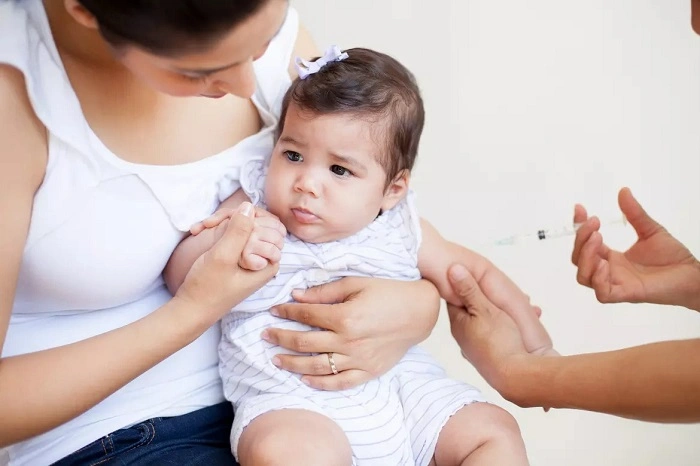
Do not fret if your baby had missed doses previously due to illness, travel, or for any other reason. Doctors have a catch-up regimen so that your baby will be immune to all the diseases.
At 9 months, your doctor may suggest:
- Catch-up DTP (diphtheria, tetanus, pertussis)
- Polio vaccines
- Hepatitis B
- Hib (Haemophilus influenzae type b)
- Pneumococcal vaccines
Your doctor will decide according to what your baby has had until now.
Also Read: Extremely Heavy Sleeper: Causes, Problems, and Solutions
9-Month Old Baby Growth and Health
9-month-old babies are usually:
- Sitting up by themselves
- Crawling or attempting to crawl
- Responding to name
- Saying “mama” or “dada”
- Picking up small objects between the fingers
Physical check-up at this point is a good way to ensure your baby is in excellent condition and developing wonderfully. Although not always needed due to a vaccination visit being already on the calendar, the visit itself is worth it to ensure they are meeting milestones.
Parents’ Role in Vaccination
The parents themselves take care of the babies. The following are some guidelines:
- Keep the vaccination card safely and get it re-inspected.
- Listen for announcements of follow-up visit for follow-up vaccination.
- Refer to the doctor if unsure.
- Never miss immunizations without consulting a doctor.
Vaccines not just save your baby, but society from epidemics as well.
FAQs
Are 9-month-old babies immunized in America?
No. There is no routine vaccination timing for a nine month vaccine in the US. It is more at the age of 12 months.
Do they vaccinate 9-month vaccines for infants outside the US?
Yes. Most babies in most of the world receive measles vaccination at age 9 months.
What happens if my baby does not receive the 9-month measles vaccine?
Your doctor will give it to your baby immediately. Do not delay. Because measles is highly contagious.
Will the 9-month vaccine make babies sick?
Fussiness or fever is minor. But more severe reactions are super rare. Vaccines are safe and tried.
Is the 9-month visit needed if no vaccines are administered?
Yes. Doctors still check for growth, development, diet, and safety precautions at this age.
Last Thoughts
Are 9 month old infants vaccinated? It depends on the country. The vaccine is administered in most countries at nine months. In the USA, for instance, infants will not receive new vaccines at this age but will receive check-ups and could receive catch-up vaccinations if necessary.
Number one is keeping your routine immunizations and following up with your doctor. Immunization is the absolute best thing you can do for your child. It is a lifetime of protection against serious illness.
Your infant is learning, growing, and finding out something new every day. A check-up and vaccine will keep them healthy and strong. As they keep moving forward towards their first birthday and beyond.


